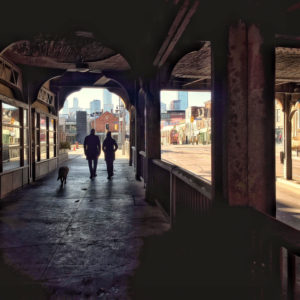April 24: Toronto lost a degree of innocence yesterday when a young man in a van plowed through crowds on Yonge Street killing 10 and injuring 15 more. I say a “degree of innocence” because I believe that many people felt that an attack of some sort was just a matter of time. Toronto, as the largest city in the country, is an obvious target and it seemed to be only a matter of time before something happened.
People have experienced a range of emotion. Some are angry, some sad. If I feel anger it is because this is such a senseless act – so selfish and unnecessary. But I am also angry because this appears to have been the act of a man with mental health issues and the system did not provide him enough support, and did not identify his intention to do harm before the fact. So ten people paid with their lives.
Many people are sad. Even though they may not be affected personally, I think we feel sadness because we know intuitively that we have all lost something we value deeply: the security and openness that we feel as Torontonians. Most of us felt that terror attacks and the random shooters common in the United States happened to others, not to us. Now we’ve lost that sense of distance and perhaps even smugness that gave us the unreasonable belief that we were somehow different and would therefore escape the emotion of an assault.
Several weeks ago, an horrific bus crash in Humboldt Saskatchewan killed 14 people. While it was shocking and saddening for the rest of Canada, it felt like an “accident” that happened at a distance that somehow removed it from having an immediate and direct impact on our lives. I was shocked and amazed to see that a crowd-funding effort had netted more than $10 million to support the victims’ families. At more or less the same time, a bus went off the road in India killing 23 students, yet I couldn’t find a gofundme page for them.
Dozens of people seem to die every day as a result of horrible accidents, suicide bombs or terrorist attacks. Their lives are no less valuable than ours, yet the distance and frequency of such attacks makes them somehow less significant: Just another bomb in Syria. Toronto has been lucky to avoid an attack, until now. And while it was not a “terrorist attack” in the literal sense, we did lose our innocence and have woken up to the potential damage that a “real” attack could do. Many other cities and countries live with this reality every day.
Toronto often seeks to be “world-class” and perhaps now more than ever before, that may be true. We have learned that we have the same potential to be a target as Paris or Brussels or Barcelona or London or Beirut or …
Further reading: https://www.theglobeandmail.com/canada/toronto/article-the-truths-canada-needs-to-remember/


